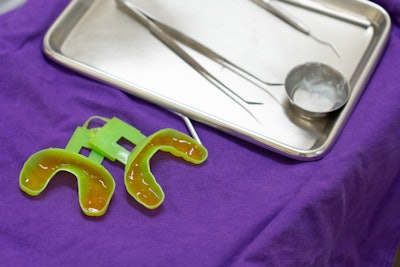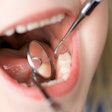
Parents of children with a history of untreated cavities may be more likely to accept fluoride treatment for their children. The study was published in the Journal of the American Dental Association.
Therefore, dental professionals should assess and communicate a child's risk of cavities before recommending topical fluoride treatment, the authors wrote.
"Parents of children with a history of caries are less likely to refuse topical fluoride treatment, which suggests that untreated caries may motivate parents to accept preventive dental treatments like fluoride," wrote the authors, led by Gulaiim Almatkyzy, PhD, MS, of the University of Washington School of Dentistry (JADA, July 17, 2024).
The study included 356 children ages 18 years or younger who were patients at the university’s dental clinic from January 2016 to June 2020. About 46% of the children had a history of untreated caries. Furthermore, children whose parents declined fluoride treatment were matched by age with those whose parents accepted it.
The outcome variable was whether parents refused topical fluoride treatment, and the predictor variable was the presence of untreated caries. Regression models, adjusted for confounding variables, were used to estimate the prevalence ratio of fluoride refusal based on the child's untreated caries status, they wrote.
The prevalence of parents who refused fluoride treatment was significantly lower for children with a history of untreated caries compared to those without such a history (unadjusted prevalence ratio [PR], 0.77; 95% confidence interval [CI], 0.62 to 0.95; p = .02).
Moreover, after adjusting for confounding factors, the prevalence of fluoride refusal remained significantly lower for children with untreated caries compared to those without (adjusted PR, 0.79; 95% CI, 0.63 to 0.98; p = .03), according to the results.
However, the study had limitations. As an observational and cross-sectional study, causality between untreated caries and parental refusal of fluoride treatment could not be determined.
Future research using longitudinal and qualitative methods may provide a deeper understanding of fluoride refusal behaviors, the authors wrote.
"Further research is needed to identify effective communication strategies and behavioral interventions for parents who are hesitant about fluoride treatment, particularly those whose children are at high caries risk," Almatkyzy and colleagues wrote.




















